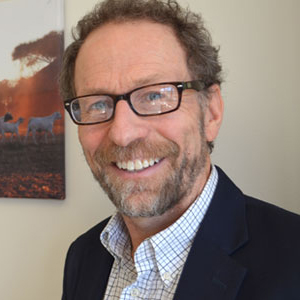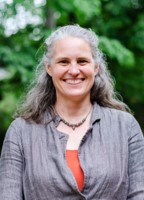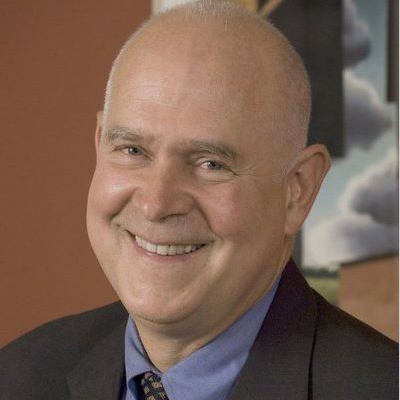Peter Rabinowitz, MD, MPH, directs the Center for One Health Research and has multiple faculty appointments including Professor, Global Health, at UW. The “One Health” center explores linkages between human, animal, and environmental health. Dr. Rabinowitz has expertise in zoonotic infectious disease; diseases of animal workers; microbiome sharing between humans and animals; emerging infectious disease; antimicrobial resistance animal sentinels of environmental health hazards; and noise and hearing loss.
Dr. Rabinowitz also directs the Canary Database, an online resource for evidence about animals as sentinels of environmental health threats from both toxic and infectious hazards. He was a visiting scientist at the Global Influenza Program of the WHO, and also in the Animal Health Division of the U.N. Food and Agriculture Organization (FAO). He completed a Family Medicine residency through the University of California San Francisco, and completed fellowships in General Preventive Medicine and Occupational and Environmental Medicine at the Yale School of Medicine.
Program Highlights
Matthew Golden, MD, is a Professor, UW Division of Allergy and Infectious Disease, and he is Director of a the UW and Public Health, Seattle & King County (PHSKC) – HIV/STD Control Program, a collaborative project aimed at evaluating new public health interventions to control sexually transmitted infections (STIs), including HIV. This project also provides a fellowship training opportunity to teach how to integrate research and public health practice.
Dr. Golden works on research and public health projects related to HIV partner services in several countries in sub-Saharan Africa. He is the principal investigator of a CDC grant aimed at providing assistance to U.S. health departments in high-impact HIV prevention and training opportunities for persons interested in careers in HIV/STD-related public health practice. His research includes evaluations of population-based interventions to improve HIV care, a study of seroadaptive behaviors among men who have sex with men, research on new treatments for gonorrhea and HIV/STD surveillance projects, and program evaluations.
Program Highlights
Nancy Puttkammer is an Acting Assistant Professor within the Department of Global Health at University of Washington and is the faculty co-lead of the Digital Initiatives Group at I-TECH (DIGI). Her interests are in strengthening health information systems and promoting data use and for quality improvement of health programs in resource-limited settings. She is trained as a health services researcher, specializing in using observational, routinely-collected data from electronic medical records (EMRs) to strengthen HIV care and treatment programs.
In her capacity as a Research and Evaluation Advisor at the International Training and Education Center for Health, Dr. Puttkammer works with informatics and training projects in Haiti, Kenya, and South Africa to improve large-scale implementation of EMRs, evaluate data quality and data use, support data analyses, and develop capacity for data use and implementation science research among colleagues and counterparts. Dr. Puttkammer has a PhD in Health Services from the University of Washington and an MPH in Community Health Education from the University of California, Berkeley.
Program Highlights
Scott Barnhart, MD, MPH, has an extensive background as Professor of Global Health and former Director of Global Health Programs for I-TECH at the University of Washington. He has had responsibility for leading nine country offices, projects in 14 countries, and more than 500 staff. This experience and training has included extensive clinical work, research and program management in pulmonary and environmental and occupational medicine, and more than eight years as Medical Director of a safety net/Level 1 Trauma Center hospital.
Ensuring health systems can quickly detect and respond to emerging health threats is a critical challenge in both domestic and global health. Dr. Barnhart’s major implementation projects include scale-up of voluntary medical male circumcision (VMMC) in Zimbabwe and Malawi, OpenMRS, and laboratory information systems. Dr. Barnhart deploys his expertise in multiple African countries and Haiti to strengthen health systems and health care.
A goal of Dr. Barnhart’s work is to promote country-led, country owned sustainable development. Consistent with the principles of the Paris Declaration, the goal is to transition the bulk of development work and the associated leadership, ownership, technical direction and control of funding into the countries where development occurs. This approach ensures that the entire continuum of skills necessary for development (technical expertise, administration (human resources, operations, and management and accountability for funds) is transitioned to local partners. A key indicator is to have 75% or more of a grant’s funding expended in-country on local programs and local citizens and to support the local economies in these highly resourced constrained countries. Dr. Barnhart has worked closely to advance this model through projects in Haiti with a goal to shift the majority of a project to a local organization and in Zimbabwe where the VMMC program is largely run through local partners.
Program Highlights



